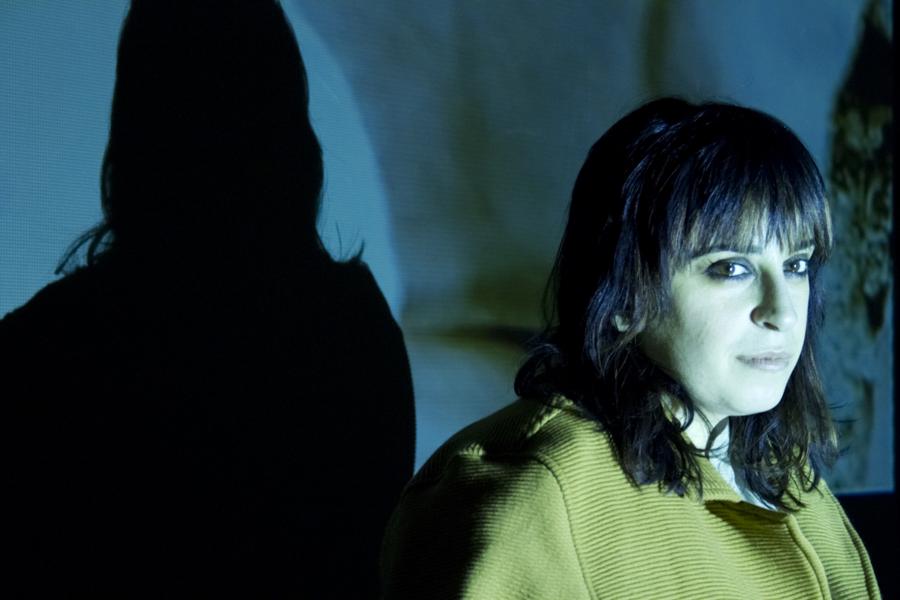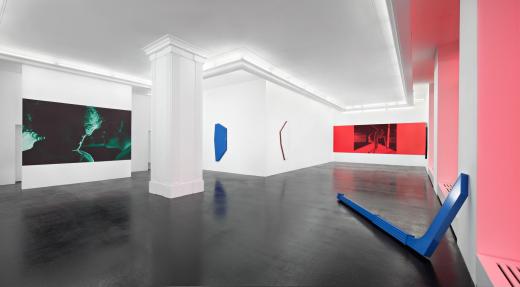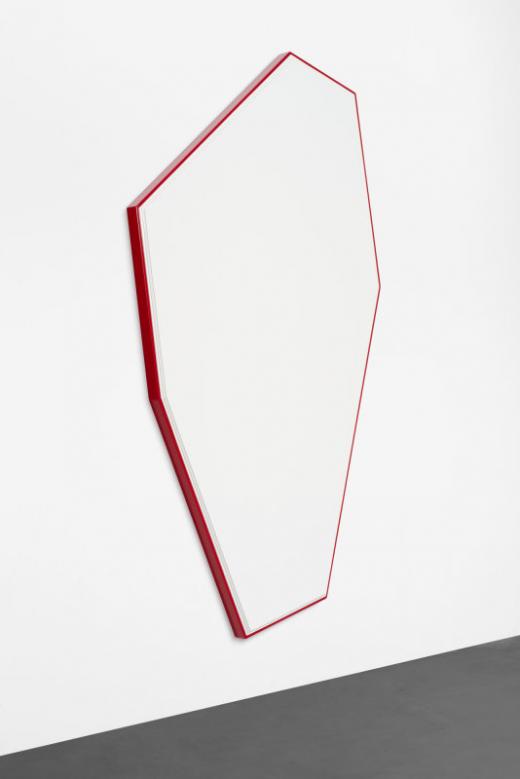Pre-interview: Marinella Senatore
Pre-interview: Marinella Senatore

While simultaneously participating at the Lyon Biennale and getting ready for the Berlin Art Week, Marinella Senatore reached back to us and shared some thoughts on her upcoming solo show “Scenografia” at Peres Projects, and the related installation at the abc art berlin contemporary art fair.
Marinella’s practice is characterized by public participation and tapping into the creative power of a crowd. Filmmaking is her vehicle for bringing participants together, and these collaborative efforts are then turned into bodies of work spanning painting, sculpture, video, performance, and installation.
What stands behind the exhibition title "Scenografia"?
My practice is characterized by public engagement. I used to involve entire communities in big scale projects, and often the outcome of such experience is film and video. The "Scenografia" becomes a social space in that moment. Actually, I build temporary communities, and for the first time in an exhibition space we will show one of the aspects of my work very unknown.
Give us a sneak peek behind the scene; to the process of setting up this show.


© Peres Projects
Basically the engagement of participants is based on negotiations about what everyone wants to achieve or experience: somebody wants to learn, others share their skills. We often collaborate with craftsman and carpenter, and we design the set. After a participatory project, I take private time of intense study (that time is very useful to think about the work, to prepare lectures, make drawings, paintings, sculptures, and analyse different aspect… It’s my space of “studying” and elaborating) and thinking about what we have done, how my role activated the work, etc.
Do you always need a different approach, or you have a certain way of presenting your artwork?
Every time is very different. An exhibition is the result of the moment I’m living, the desire to show some particular aspect of my work, which is pretty multifaceted; it’s also a nice and important collective open discussion with my dealers… I just want the audience to feel comfortable and live an experience, sometimes offering the possibility of real participation, other times offering parts of me they could discover.
You have a very specific approach to art. What brought you to the work you do today?
The idea is to foster the creative power of a crowd, initiating a dialogue between history, culture and social structures. Actually my work is open to be experienced by everyone, inviting people to create a participative work in which everybody can play a role. We encompass very different media, and confront ourselves with several languages: video, installations, performance, photographs, drawings, and sculpture, drama, sound.
What would be the common principle(s) in all of your work?
Emancipation. Inclusion. Compassion. Empowering of people. Building communities.
What kind of impact on the society do you strive to make?
I see my role as an “activator”, an instigator, a facilitator of processes, often focused on emancipation and engagement.
Regarding your participatory art: what did you discover through working with so many people?
The needs of the socialization, the compassion, the social structures and how they work differently, the gap among classes, and the legacy of the memory people need to preserve among other millions of emotions. I feel very honoured to experience that. Community is important, even just a temporary one, because - quoting Bauman - even the sounds feel good, and it has become, at least from my point of view, after meeting and working with over 60.000 people, that the feeling of belonging to something is getting more and more crucial.
Have you faced some problems in communication and collaboration, or discovered any greater issues in these processes?
When it is possible, I often try to learn the language of the communities I will work with (i.e. in UK I collaborated with over 1000 deaf people and it was a pleasure to learn the British Sign Language and have a direct communication with them). I’m not scared about different languages. I’m working in Sweden, it’s the third project already, and I collaborate with translator, not only for Swedish language, but mostly for Arabic, Turkish, Portuguese, Syrian refugees, etc... And due to the fact I engage different communities (as I did, for instance, also in the occasion of the last Biennial of Lyon), what really counts is the link - which is over the barriers of communication - that I establish with people. It’s a flux of energy between me and the participants.
Can you pick out a favorite moment in your work so far?
The first day: when nobody wants to talk, the embarrassment of the initial minutes and then, suddenly, somebody says a word and another replies, and I know - OK, it started!
What are you looking forward to the most at the Berlin Art Week and abc fair – besides your own show?
I don’t live in Berlin anymore, so it’s a great occasion for me to see artists and galleries I like so much, to be inspired, to discover new things. I like to be surprised.
* * * * *
Marinella Senatore: "Scenografia" @ Peres Projects
Opening: 16.09, 18h - 21h
Show open through 07.11